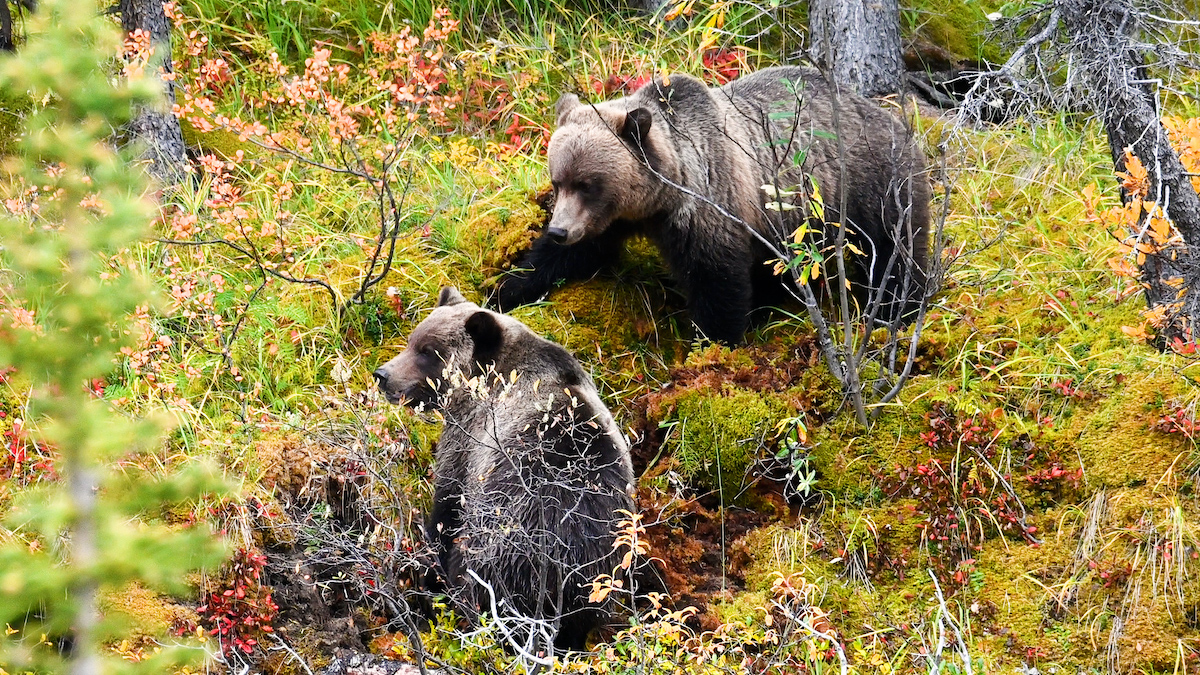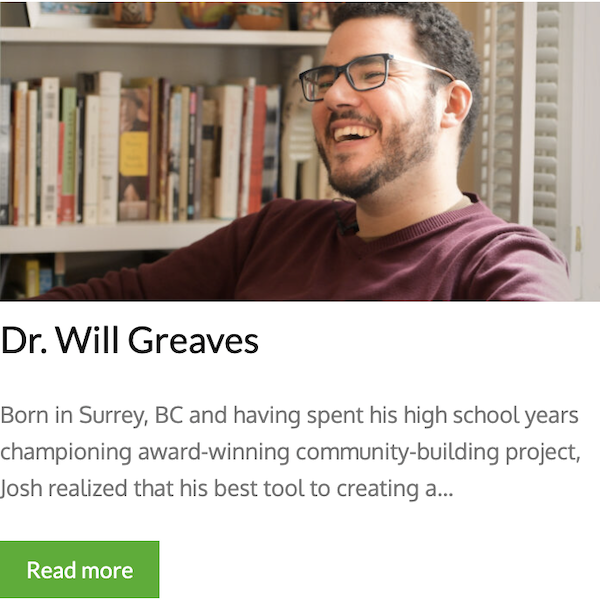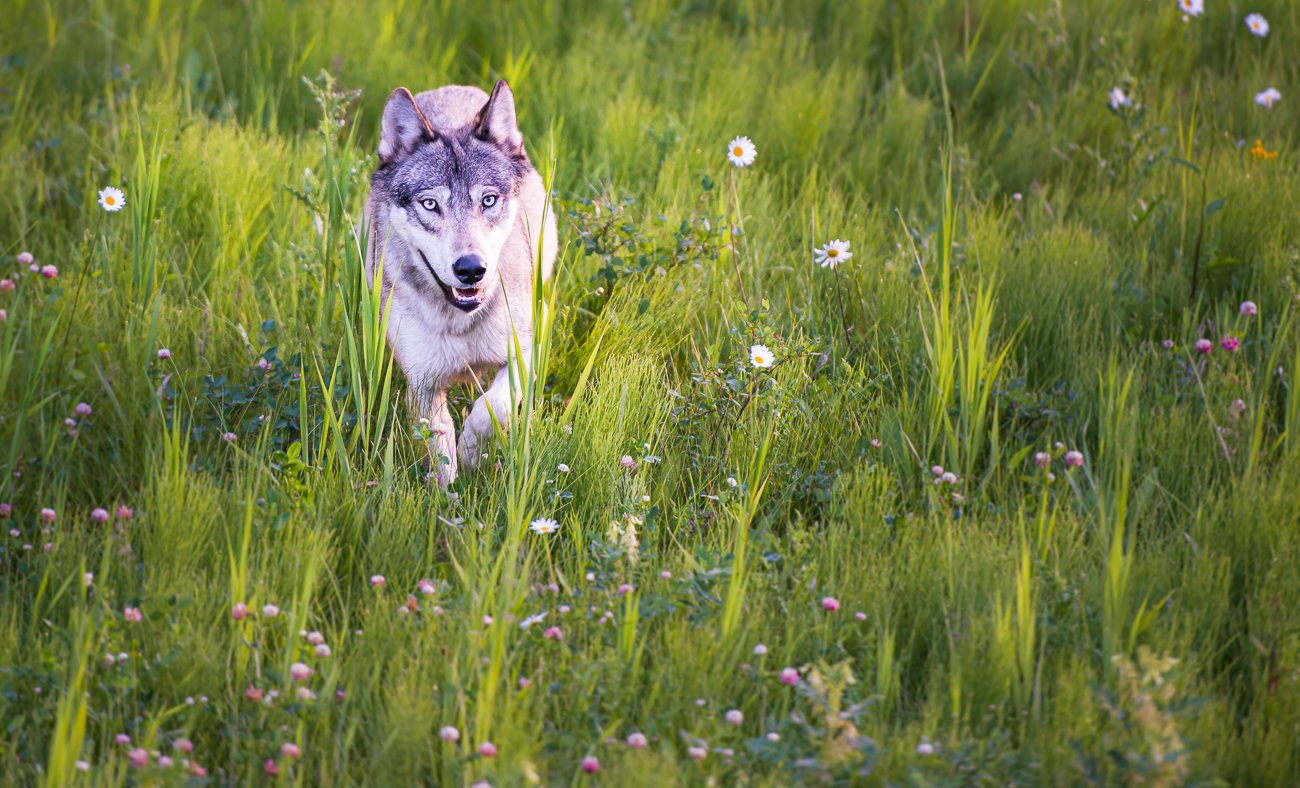The System of Things
Chapter One
Kim Campbell understands systems.
“Obviously there have to be things done on a large scale (to protect biodiversity) – species preservation, reforestation, wetlands preservation.”
Right, she gets why natural systems matter, but Kim Campbell also knows a thing or two about how our political system works.
“I was most powerful when I was in Parliament because I was Minister of Justice and Attorney General for three years. I had the responsibility of making amendments to the Criminal Code and was able to do some very significant things there.”
No matter the system, Kim Campbell understands that they’re complex and gets why systems change can feel impossible at times, but she also knows we can impact our systems – natural or political – for the better.
“I think we are living in dark times, but it’s not the first time we’ve lived in dark times. And it’s been the courage and steadfastness of particularly young people that have helped us to get through it.”
Kim Campbell’s right. And yet, as she points out, that’s only happened – can only happen – when we engage with the systems we often don’t understand; the systems we often love to hate.
“At the end of the day, the policies that we live by – the rules that we live by – are made by those to whom we give the responsibility to govern. So, if you think you can be all the things you want to be without paying attention to politics, you’re deluded. You can’t.”
Kim Campbell, of course, was Canada’s 19th prime minister.
“I had a responsibility to participate and, of course, as I got older, that translated into the democratic governance of my society. I felt if I could make a contribution, then I should.”
And she did. Kim Campbell was Canada’s first – and, so far, only – female prime minister.
“I was really be touched by how many people said to me, ‘I was in grade eight, when you became prime minister and I just thought it was so great’. Or, ‘I was in university and it was like the biggest deal and it was so wonderful’. And they didn’t say, ‘And then you lost and I felt terrible’. What they remembered was that I had made that breakthrough. And so a woman being Prime Minister was no longer hypothetical. It was a reality.”
Like our two bears, Kim Campbell’s story didn’t start at the top. It was a long journey of ups and downs. It was a series of steps that started small and allowed a young Kim Campbell to better understand Canada’s system of governance.
“I started my political career on the school board. After all, the decisions people make in local government – whether it’s school board or parks board or city council – these affect people directly every day. It’s actually a great place to learn your political instincts because you don’t go someplace else to serve your constituents; they’re right there (where you live).”
From municipal politics, Kim Campbell then worked to influence policy provincially as a BC Member of the Legislative Assembly.
“When I was in the provincial legislature, my party was in government, but I didn’t get on that well with the premier, so, I wasn’t in cabinet. But I did (help lead a) taskforce on conservation and its report (led to policy changes) brought in by the following NDP government.”
Seeing the difference she could make, Kim Campbell aimed higher and was elected as part of the Brian Mulroney-led Progressive Conservative government of the late 80s and early 90s, serving in various cabinet ministerial roles.
And when Brian Mulroney resigned, Kim Campbell ran for and became leader of the party; became the prime minister of Canada. It was an incredible assent to power, but it was short lived.
“Even though we had a terrible defeat in the ’93 election, it didn’t destroy me and political defeat won’t kill you.”
Indeed, political defeat didn’t stop Kim Campbell from continuing to find ways to advance her vision for change.
“You know, I’ve looked to find ways to use whatever virtual tiara I have that flashes former PM to open doors for people and to continue to make a contribution.”
And Kim Campbell believes one of the best ways she can continue to make a contribution to our society is by helping you understand that you can and should follow in our former prime minister’s footsteps; that you too can shape the future of our country and our world.
“I think you don’t always even know what impact you’re going to have. But if young people do not get involved in politics, what’s at stake is their world.”
That being said, Kim Campbell does understand why many of us think that politics is fixed or just too hard to shift or impact.
“Winston Churchill once said that democracy is the worst form of government except for all the others. And I think that’s true. As long as it’s people making the system run, it’s going to reflect all of the human virtues and flaws.”
That’s a point we often forget: Democracy – politics – is a reflection of us. It represents the nation’s diversity of experiences and opinions and our diversity of strengths and weaknesses as humans.
In other words, politics is imperfect because we’re imperfect. But Kim Campbell says, we can make it more perfect than imperfect by recognizing that “democracy, first of all, is based on the notion of the rule of law, which is one of the most precious concepts ever created. And the law needs to apply equally to everybody and we need to be vigilant about that; realize our whole justice system is the foundation of democracy.”
That’s important because justice isn’t just about crime and punishment; it’s what underpins the peaceful transfer of power in Canada and in all democracies.

Kim Campbell explains that the rule of law ensures “we can alternate our governments. Sometimes we elect people and they turn out to be incompetent or their direction is not what we want, (so we) can change the government.
“Nobody has a lifetime mandate of power. And that is so important, because if you look around the world, you know there are places where people get into power and don’t want to get out again. They use the military and they use the police and they use communications to build a wall of impermeability around them.”
Which is why, Kim Campbell argues, even if you hate politics, you can’t reject our democracy. You can’t reject our imperfect system because, for all its ills, it’s both precious and fragile.
“I’ve seen the alternative to democracy. And I’ve seen the price that people have paid for us to be able to do what we’re doing. And (our politics) is not perfect, and there are a lot of idiots who do it. But there are also wonderful people who do it. And in every election where people lose and win by the fact that the voters have a choice? That people will stand for their party and have to articulate what they stand for? That is so important.”
It’s why our former prime minister urges us to understand our system and how to work with it.
“Again, that’s (understanding) policymaking and that’s going into politics. It’s educating yourself, supporting people you admire and, when the time comes, maybe stepping forward yourself to be a candidate so that those right decisions are made.”
No matter how we work with and within our system though, Kim Campbell argues we must always embrace good citizenship and good stewardship.
What does that mean?
Well, our former prime minister says, “never cast a ballot for climate denier or a racist. And if you manage to do that, you will have been a very constructive democratic citizen. What you do more than that is really up to you.”
Whether you agree with Kim Campbell’s opinion or her politics, or not, she says the point we can’t debate or forget is:
“Politics matters for the same reason it always has. Because fundamentally, it’s about power. It’s about who gets to make decisions.”
Dr. Will Greaves agrees.
As a political science professor, Will has spent his life helping people better understand the impact of politics on our lives and the systems that sustain us.
“The kinds of challenges that we’re facing today at all kinds of levels – at local levels and regional levels, at national and global levels – are fundamentally these questions about who gets to make decisions about our future.”
That’s why Will believes “politics is as relevant today as it ever has been, but the stakes are higher than they’ve been for a long time. And I think that that’s really what is different about this current moment that we’re living through. Not that politics is different, but that what we’re fighting for matters a lot.”
The challenge, Will explains, is that “many people have lost the faith that they had in leaders and in institutions that have guided us for roughly the last 70-75 years – since the end of the Second World War really.
“People, not incorrectly, perceive our leaders and institutions as having brought us to this point in time (they have created the challenges we face). So how can people have confidence in them to be the agents that are going to resolve these problems?”
That’s a real issue, but Will argues that even if we’re losing the faith, we can’t just dispose of our politics, of our democracy.
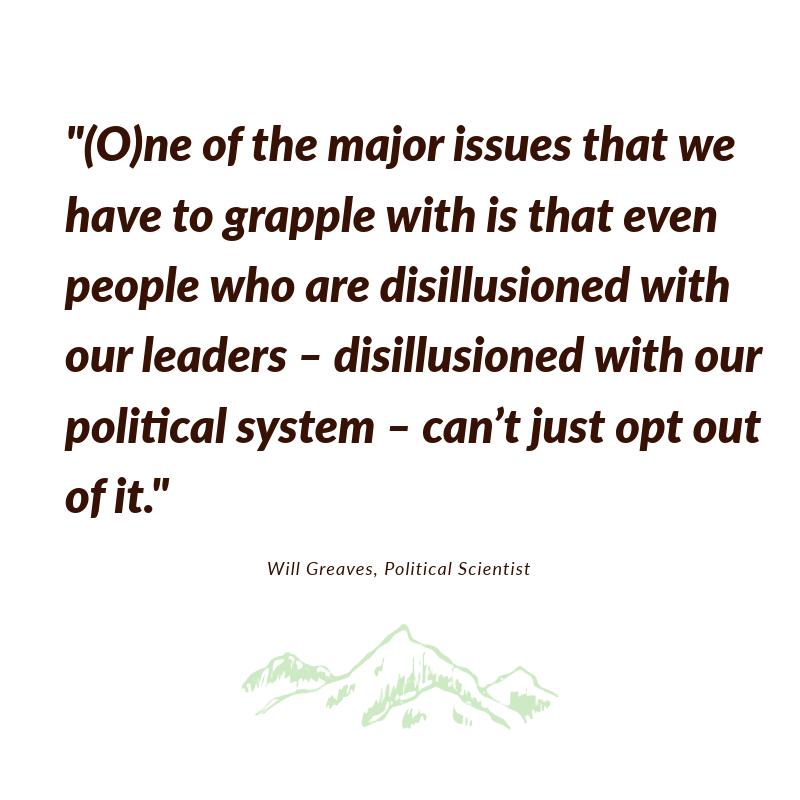
“Politics still affects the lives of people, whether or not they have faith (in the system). And, so, I think one of the major issues that we have to grapple with is that even people who are disillusioned with our leaders – disillusioned with our political system – can’t just opt out of it. These are still the ways in which we’ve organized our collective lives together. And these are still the institutions and the actors who are overwhelmingly going to make decisions about the course of our future.”
Will adds, “I don’t want to say there’s no choice because there are alternatives and there are other ways in which people can be political and can engage (in societal debates). But in still stable, broadly liberal democratic societies like Canada, it is through our elections – through our still largely legitimate institutions – that we’re going to see policy changes and decisions made. That’s where the action is and that’s where the levers of power still exist in this society.”
That means you can hate politics. You can find it confusing or boring. You can believe the system sucks. Or that change is stuck. You can think you’re voiceless, or under-represented. You can find it overwhelming or too simplistic or both.
That’s all fair.
What isn’t?
Thinking politics is pointless – that it’s something you don’t need to understand; that it’s something that doesn’t impact you. Because, in a way, politics is life.
Even though we assume politics is limited to places like Ottawa, we forget that it plays out each day in places close and far – in nature and at our diner table.
You see, all relationships involve decision-making.
Should the TV play the latest season of Ted Lasso or be used to help save Ashley Graham? Should it be a curry or taco night? Who should take out the garbage and who should do the dishes?
Decisions can be a fight or a vote or a debate or a conversation. But that decision-making process and the power to make the decision? That’s politics.
I’m not breaking new ground here.
It’s why a famous bearded Greek thinker with a receding hairline once argued humans are political animals because we’re social creatures. But with apologies to Aristotle, what he overlooked is that we’re not the only political animal.
Mountain goats live in a society defined by a matriarchal hierarchy – not dissimilar from the one made famous by Cleopatra.
Bees – sure they have queens – but their decisions aren’t hierarchical: they’re democratic. That’s right: What they eat, where they feed, how they live – it’s a decision making process not unlike a few better known constitutional monarchies. Like Canada’s!
Pigeons – yes, pigeons – also have complex social structures. But no matter the bloodline of any given pigeon, its vote still matters in determining a flock’s flight. Which sounds a lot like the dreams that led to the French and American Revolutions. But according to scientists, not all votes are totally created equal…which sounds a lot more like today’s American and French republics.
And wolves? Despite popular myth, they aren’t living in mini-totalitarian states al la Game of Thrones. Or, say, present-day Russia.
The society of wolves doesn’t revolve around an alpha, but a family, with elders advising the youngers, resembling cultures we know well, like Japan’s or many Indigenous nations around the world.
And each of these wildlife societies? Like different countries in the world, they don’t exist in a vacuum.
An animal’s power to make decisions – what and where and when they eat and how they live – helps determine their species’ niche. And how each niche fulfilled impacts the lives of other species that share their habitat helps the ecosystem function as a whole. And, of course, each ecosystem connects to others, helping determine the health of our global biodiversity.
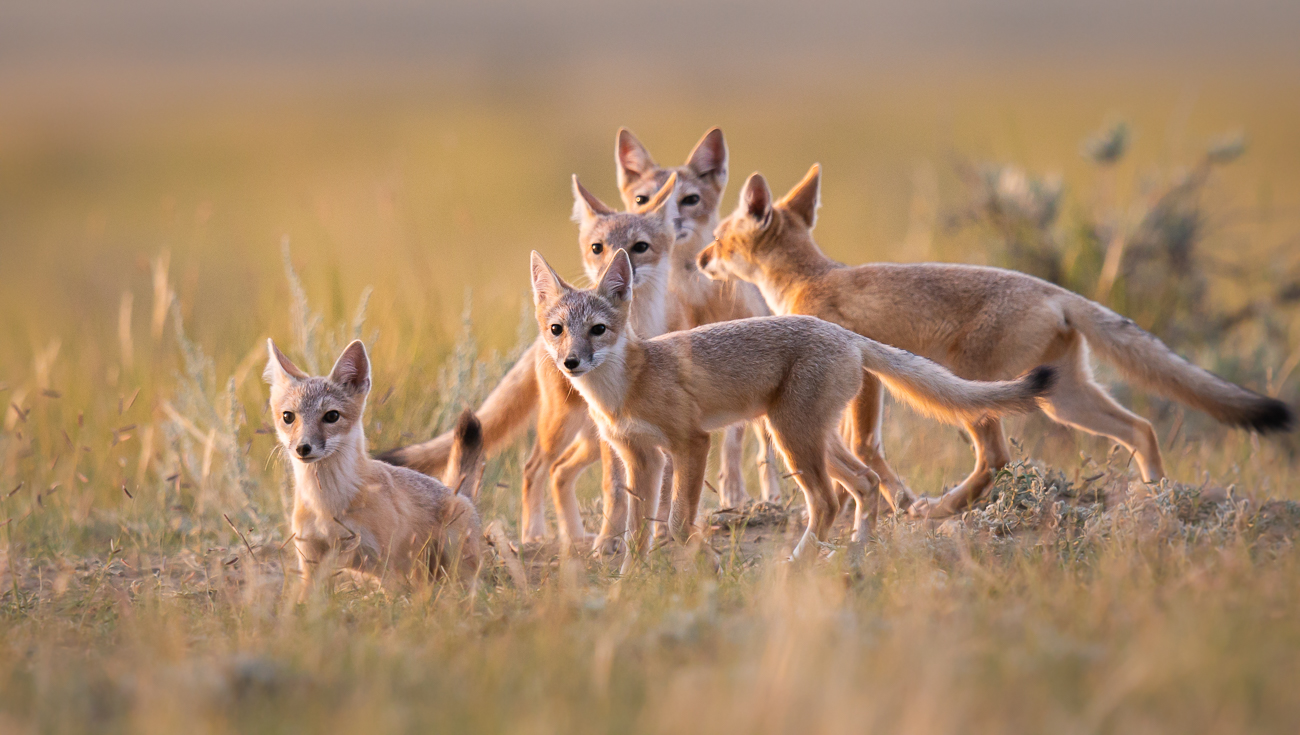
In other words, just like our political system, wildlife decisions – the politics of animal societies – impact life big and small, in ways big and small, both near and far.
See? Politics is in our nature. Literally.
That’s important to remember. Because if we realize politics is all around us – being practiced in our homes, amongst our friends and by our natural neighbours – it can begin to feel less daunting and more relevant. It can become relatable even. And we need to relate to our political system; we need to understand how it impacts us and how we impact it.
After all, even when so much of life seems determined by circumstances out of our control, there is still so much we can control. As former prime minister Kim Campbell reminds us:
“Power is real. Somebody’s going to have it. And if you would exercise it ethically, and in the national interest, why shouldn’t it be you?”


